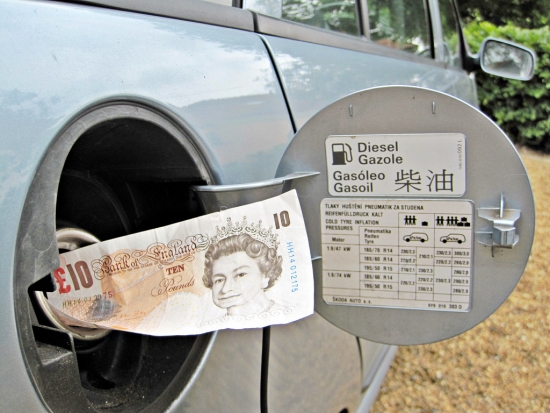It is no secret that life in the UK is becoming more expensive for everyone. To make the situation even tougher, the prices of essentials such as food, drink and heating bills are expected to rocket in the next few months, putting further strain on the household budgets of the average family.
Unfortunately, it seems that many workers are spending large portions of their hard-earned wages on costs essential to their jobs, a study commissioned by Santander 123 World revealed earlier this week.

On average, a single employee spends up to £1,833 annually on travel, childcare, clothing and lunch whilst at their workplace – meaning that, in some cases, the worker would be better off accepting benefits than facing the commute into work on a daily basis.
And this total is set to rise, especially after the announcement in the Chancellor’s Autumn Statement warning of further public transport price hikes. This is despite the fact that Santander 123 World’s study shows that commuting is the largest expense placed upon the heads of the nation’s workers – for those who use public transport, the average annual cost works out at £782.
CEO of Santander cards, Alan Mathewson, says; “Most people in this country work incredibly hard to bring in enough money to support themselves and their families, so it is frustrating when they often find themselves spending a sizeable percentage of their take home pay just getting to work in the first place.
“When these costs are broken down it’s easy to see how it all adds up and there are a number of small changes people can make to their day to day routine to reduce these costs, such as car-pooling with colleagues or making a packed lunch instead of buying food from food outlets every day.”
Commuters who travel to work via public transport certainly find a large amount taken out of their pay to do so – yet drivers are hit even harder with their annual costs.
On average, a driver who uses their car in the daily commute will spend £829 on petrol or diesel, £32 passing through congestion charge zones and a further £65 to park during the day. While many would suggest drivers switch to public transport instead, this is not possible for many who live in rural areas and thus out of reach of bus and rail links.
For those in this situation, it may come as a relief to learn that the Government is currently debating the implementation of a discount on fuel for drivers living in remote areas. As petrol prices have risen more steeply in the countryside than in towns, with some filling stations racking up their prices to £1.40 per litre or higher, Ministers now believe that cutting fuel duty will level the playing field for those without a large choice of fuel suppliers.
A similar scheme has already been put in place in the Inner and Outer Hebrides, the Northern Isles and the Isles of Scilly at the suggestion of Treasury Chief Secretary Danny Alexander. Drivers in these areas receive a fuel duty discount of 5 pence per litre every time they fill up their tanks.
The plan was put forward in the Government’s mid-term review and cited the possibility of extending the fuel duty cuts to areas of Cornwall, North Wales and the Scottish Highlands. Yet this will only be able to go ahead with the approval of the European Commission, as the consideration of whether the move would break competition laws or not must be decided in Brussels.
An MP supporting the move pointed out that examples of this scheme are in place across Europe already, saying; “The precedents are there in Greece and elsewhere.
“For the areas affected by these very high prices, it will be a significant cut.”
Do you believe that the Government truly intends to implement these fuel duty discounts for drivers in far flung areas, or is this simply a move to appease the public after a run of gradually increasing prices for petrol and diesel? Are you in the situation where you live in a remote area and have to commute to work by car, or have you managed to find an easy, more economically friendly solution to this expensive dilemma?
Previous Post
Big Defaults on Las Vegas Commercial Property Loans